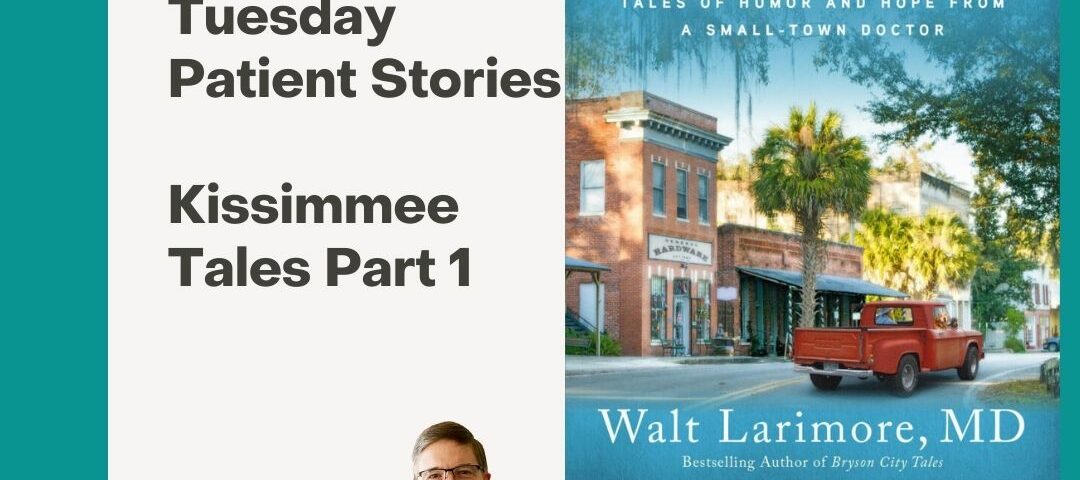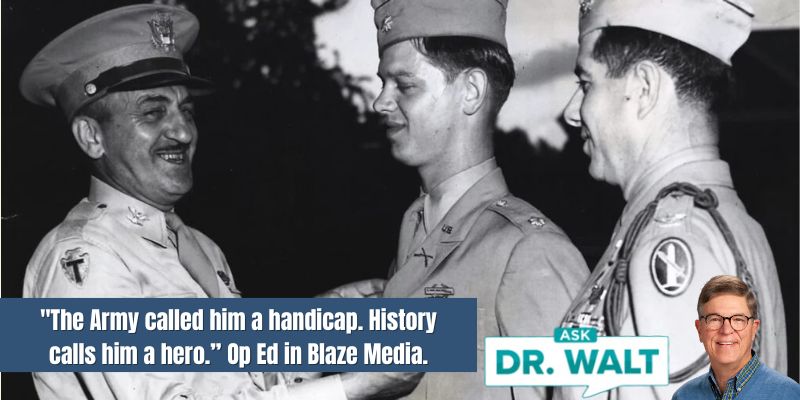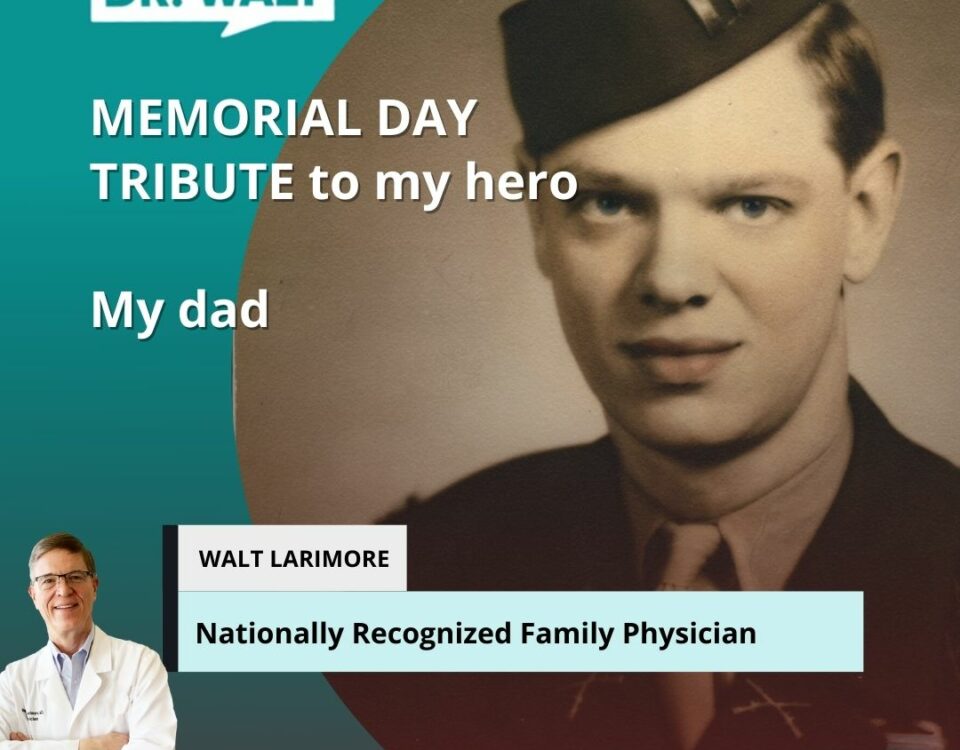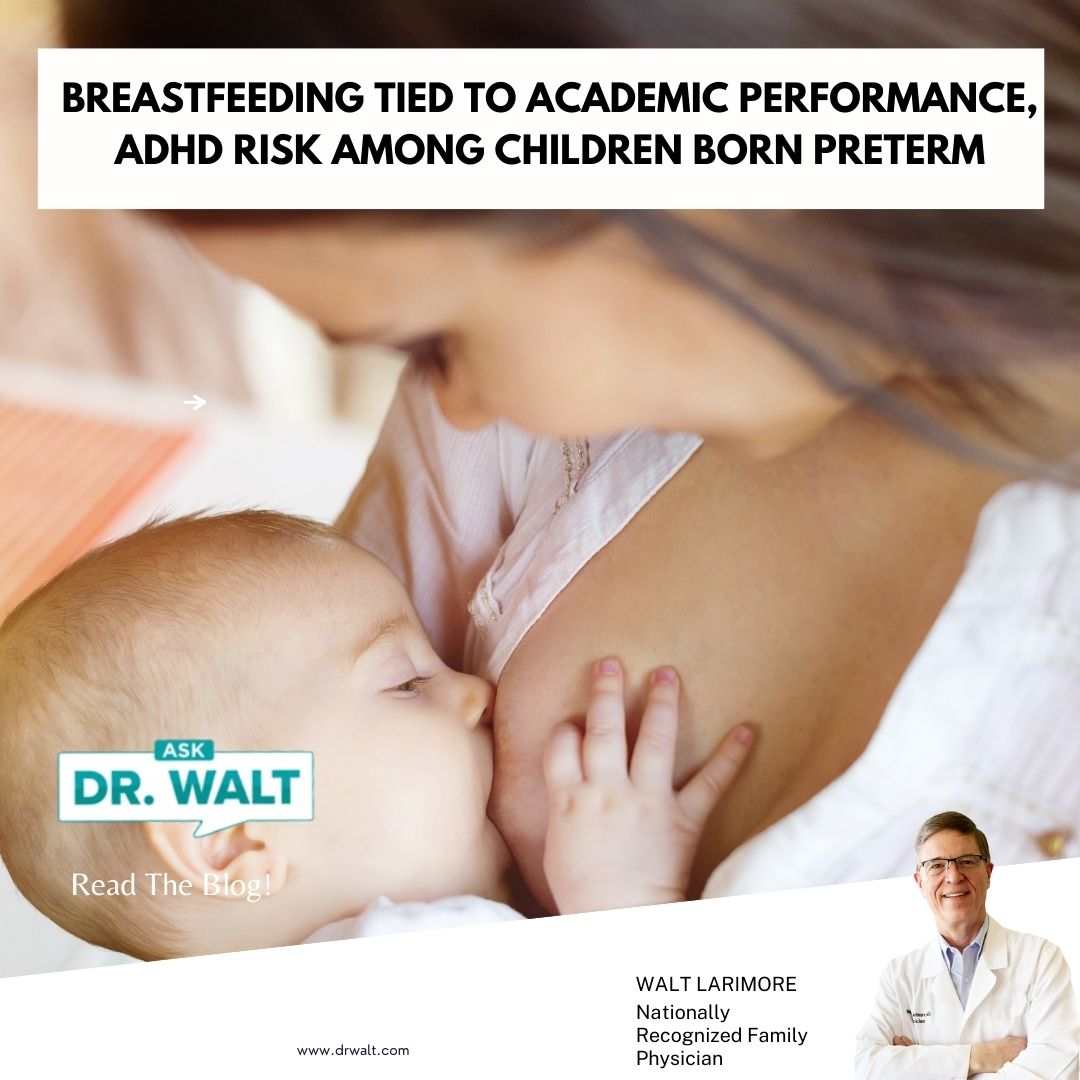
Breastfeeding tied to academic performance, ADHD risk among children born preterm
August 8, 2022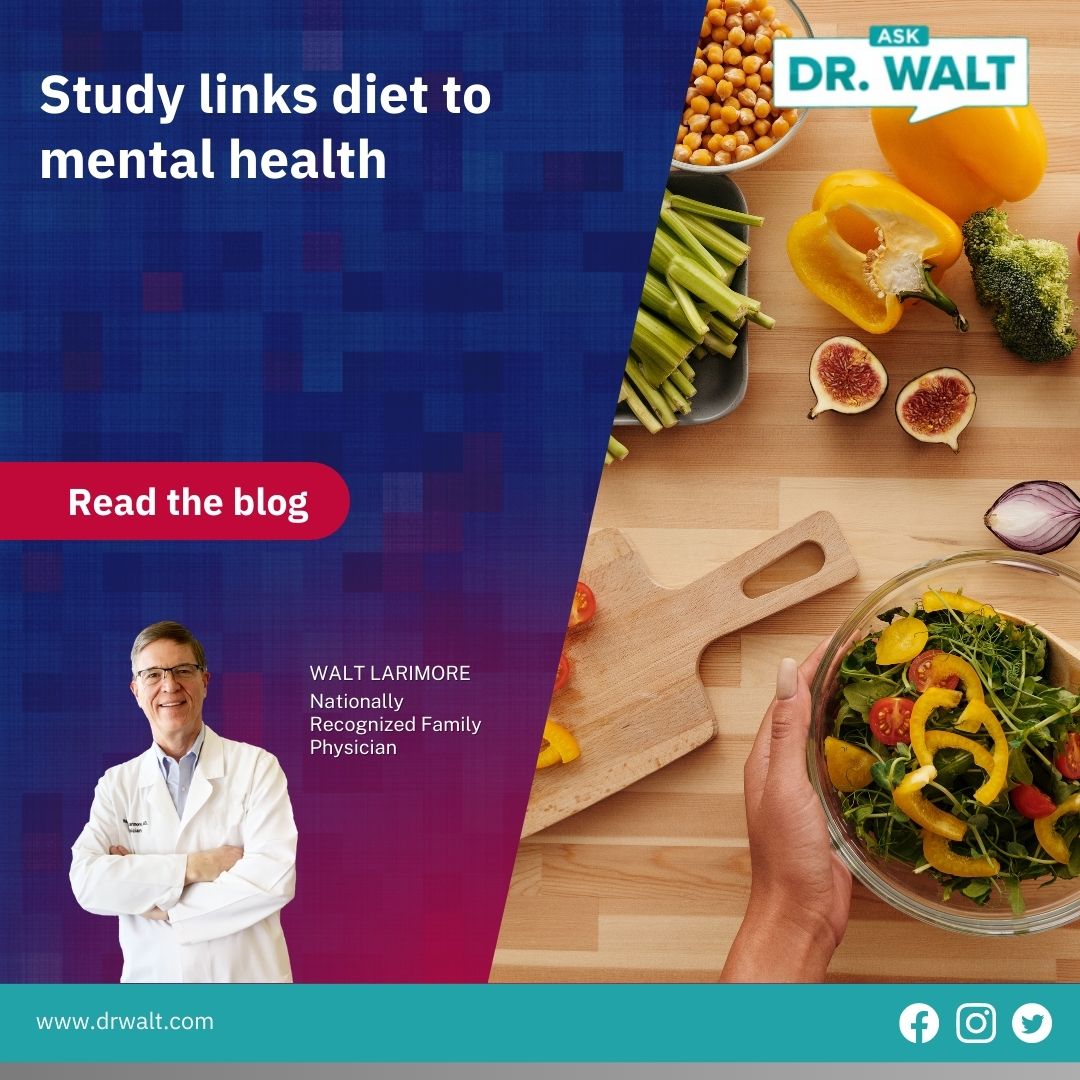
Study links diet to mental health
August 10, 2022For the next few months, I’m excerpting chapters from the first of two books about my early years in family medicine in Kissimmee, Florida – The Best Medicine: Tales of Humor and Hope from a Small-Town Doctor. I hope you, your family, and your friends will follow along and enjoy this trip back into the past with me and my family.
CHAPTER 1A – NEAR DEATH
BETH DASHED INTO MY OFFICE. “Dr. Larimore, I need you in the treatment room. Now!”
I threw down the chart I was reading and followed my nurse down the hall and into the procedure room. Patty was placing a blood pressure cuff on a distinguished-looking gentleman with gray hair and a tanned face, but he was critically ill— not fully alert, ashen, and with a cold, clammy forehead.
As I examined him, Beth gave some history. “His name is Dan Autrey. He has a cabin above the Nantahala River. He was working in his yard, clearing some brush, when a swarm of yellow jackets attacked him. His wife said he immediately welted up and itched all over. She gave him two 25-milligram Benadryl capsules and drove him here as fast as she could.”
Patty finished taking his vital signs. “Blood pressure only 60 systolic!” she exclaimed. It was abnormally low. “Pulse is 120 and thready. Respirations 32. Pulse ox 88 percent.”
All were abnormal. I was sure he was heading into anaphylactic shock from a severe reaction to the venom. Beth pointed to the intubation kit as if to ask if we might need it should his breathing fail. “Let’s be prepared; however, get him on oxygen via nasal cannula at two liters a minute.” Beth nodded.
“Patty,” I barked, “let’s get an IV started. Lactated ringers wide open. Beth, get an EpiPen and give one dose IM, stat.”
Both of my nurses jumped into action. I turned my attention to the patient. “Mr. Autrey, can you hear me?”
He nodded.
“Mr. Autrey, can you say anything?”
He tried, but he could only whisper. I could not understand his words. I was sure the venom was affecting his vocal cords.
“Beth will give you a shot. It should help.”
He nodded again.
Although reactions to insect stings were common in the mountains, the more severe variety, such as this one, was, fortunately, rare. I said a silent prayer the treatment would work quickly.
I admired how well Patty and Beth performed together under pressure. They had worked together in the hospital ER, and it fostered their magnificent teamwork. Beth took the cover off the epinephrine syringe, wiped Dan’s skin with an alcohol swab, and then plunged the needle into his right thigh muscle.
I stood back, anxiously waiting for his response, which happened within just a minute or two. His color improved, and his breathing slowed down. He blinked his eyes a few times, and I nodded to Patty to retake his vital signs.
“Blood pressure’s up to 90 over 60, pulse 90, respirations 22.”
I felt his forehead. It was warmer. “Feeling better?” I asked.
He smiled. “I am.”
It was my turn to smile.
“Do you mind if his wife comes back to sit with him?” Beth asked. “She’s in the waiting room.”
“It’s up to Mr. Autrey.”
“Just call me Dan,” he said. “If Boots can come back, that would be great.”
I turned to Beth. “Let’s give him another 50 milligrams of oral Benadryl and an injection of 10 milligrams of dexamethasone.”
Beth nodded, and I explained to Dan: “Benadryl is an antihistamine, and the shot is a steroid. Both will help keep your reaction to the venom at bay. Since you’re better, I’m going to see another patient or two, and then I’ll be back in to check on you.”
When I returned to the treatment room, Dan was sitting up on the procedure table. He no longer looked deathly ill. At his side, holding his hand, was a beautiful woman who appeared to be younger. They were both gazing out the window.
My office sat on the top of a hill overlooking Bryson City, North Carolina, her nine hundred citizens, two stoplights, and thirty-eight Baptist churches, as well as a half-dozen churches of other denominations.
To the north was a mesmerizing view up Deep Creek Valley into the heart of Great Smoky Mountains National Park with mile after mile of one distant peak after another, all sporting petticoats of wispy clouds that looked like puffs of smoke—thus the origin of the term the Smoky Mountains. The setting was spectacular. I never grew tired of admiring the astonishing panorama.
After I introduced myself, she replied, “I’m Boots Autrey.”
“Where are you from?” I was sure they weren’t from Swain County, and Floridians inhabited— some locals said infested— the Autrey’s development and a few other small neighborhoods in the Bryson City area.
“We’re from a small town in Central Florida called Kissimmee. It’s near Disney World. We come up here off and on during the year.”
“My wife, Barb, and I honeymooned at Disney World.”
This comment seemed to spark Boots’ interest. “Did you like it?”
“We did. We thought it was a great place to . . . er . . . visit!”
She looked at me. “It’s also a great place to live. Why don’t you come to practice in our small town? We need more family doctors. And I can tell you, you’d have no problem building a practice down there.”
“Tell you what,” I said, smiling. “If the Lord ever leads us away from this little piece of heaven, I’ll give you all a call.”
“It’s a deal!” Boots responded.
“Here’s a prescription for an antihistamine for Dan to take over the next three days and another for an epinephrine pen to keep at the house. I’ll have Beth give you instructions on how and when to use it.
After they left, Beth breathed a sigh of relief. “What a dramatic way to start the day! But you did good, Dr. Larimore.” That was how the local nurses would compliment a doctor— and high praise for one just starting practice.
I thought, What if I had not done “good”? What if Dan had not made it? It would have been terrible PR. Everyone knew the local gossip mills in small towns could work for or against you.
A wiser voice inside chided, But how can you think only of yourself? This is not about your reputation! It’s about serving others the best way possible, and you just did that in spades. Well done.
Part of me felt confident, competent, and capable— the part that thought I was a moral man, a helpful husband, a fine father, and a decent doctor. But another part of me was full of self-doubt and insecurity. The arguments between my two parts always produced internal strife, turning my soul into their personal battlefield. They never agreed to a truce; both refused to raise a white flag or declare a cease-fire. The battle was ever ongoing.
I tried to keep the positive part and banish the negative, but both stayed; one on each shoulder, battling and bickering. One reminded me, Do you remember what your grandfather used to say? It’s never wrong to do what’s right! While the other countered, Don’t be impractical. Doing what’s right is almost always the more difficult road. Take it easy on yourself!
It reminded me of how the apostle Paul described his relentless battle. I took some comfort in knowing he wrestled with these same internal voices. “If the power of sin within me keeps sabotaging my best intentions, I obviously need help! I realize that I don’t have what it takes. . . . Something has gone wrong deep within me and gets the better of me every time.” Then his stronger side said, “I can do all things through Christ who strengthens me.”
I just needed to depend more upon Yahweh and less on my way.
TO BE CONTINUED
This excerpt of The Best Medicine: Tales of Humor and Hope from a Small-Town Doctor is provided with the permission of the publisher Baker/Revell. You can learn more about the book or purchase a copy here.
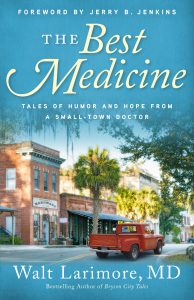
© Copyright WLL, INC. 2022.

